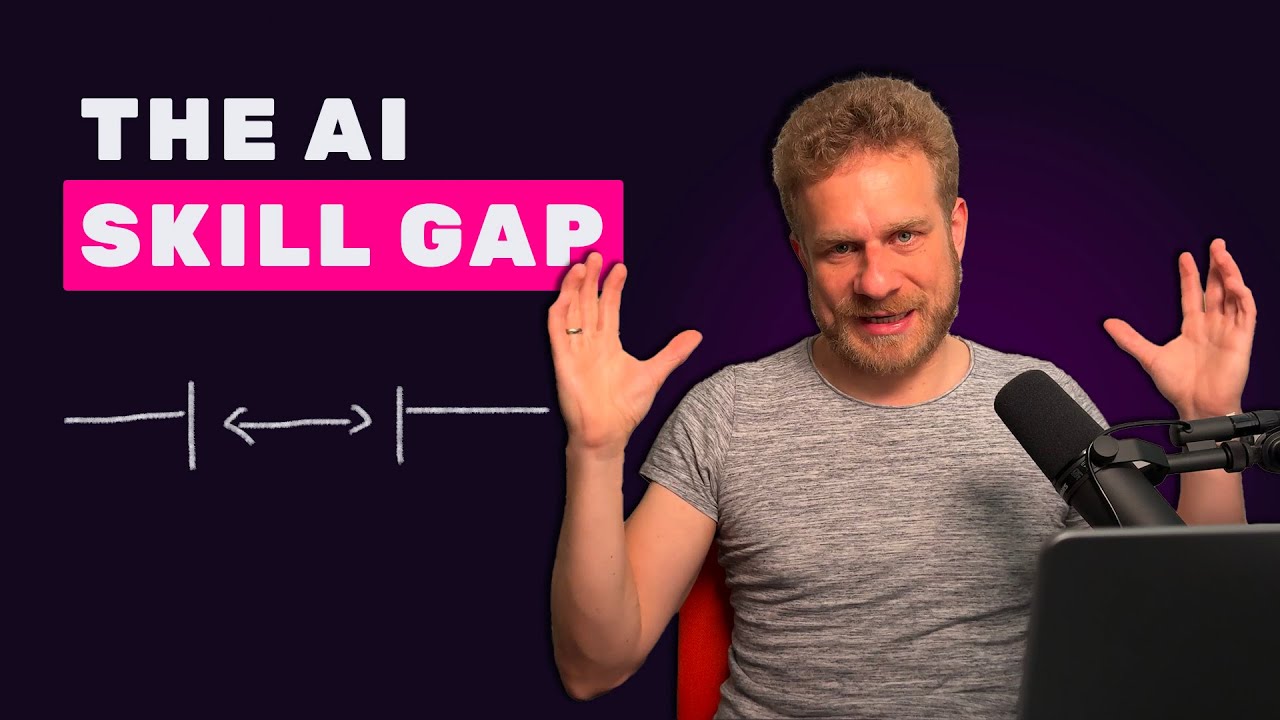
"In a decade perhaps everyone on Earth will be capable of accomplishing more than the most impactful person can today." This optimistic prediction from Sam Altman suggests that generative AI will function as a great equalizer, empowering everyone with unprecedented capabilities. But is this vision realistic, or could AI actually widen existing inequalities in the labour market?
The Promise vs. Reality of Generative AI
The promise is enticing: AI assistants will become so powerful that they'll enable anyone to build and create things previously unimaginable. But assuming AI does reach these capabilities, there's a critical question we need to ask: Will everyone benefit equally from this technological revolution?
Evidence suggests otherwise. Today's generative AI tools are already revealing a concerning pattern: those who are already skilled, knowledgeable, or privileged are gaining disproportionate advantages from AI adoption.

How Skill Levels Affect AI Utilization
Consider software development as an example. Experienced developers can leverage AI coding assistants to dramatically increase productivity. They can write precise prompts, quickly evaluate AI-generated code for quality, and efficiently integrate AI suggestions into complex projects. Their existing knowledge allows them to guide the AI effectively, resulting in higher-quality output with less effort.
Contrast this with someone who lacks coding experience. They might receive functional code from an AI, but without the foundational knowledge to evaluate it, they'll struggle to:
- Identify inefficient or problematic code patterns
- Extend the codebase with new features
- Debug issues that inevitably arise
- Maintain the software over time
- Write effective prompts that produce optimal results
The same principle applies to research, content creation, design, and virtually any knowledge work. Those with existing expertise can use AI as a force multiplier, while those without foundational skills may end up with mediocre results and limited understanding.

The Widening Skill Gap in the Labour Market
This dynamic creates a paradox: generative AI tools that were supposed to democratize capabilities may instead accelerate inequality in the labour market. The skill gap that has always existed is now expanding more rapidly as AI adoption increases.
We're witnessing this pattern at both individual and organizational levels. Large tech companies with resources to implement AI effectively are gaining even more significant advantages over smaller competitors. Those who were already ahead are now moving forward even faster.
The Danger of Overreliance on AI
There's another concerning trend: the temptation to rely too heavily on AI can lead to skill atrophy. When we outsource our thinking and problem-solving to AI systems, we risk losing the very capabilities that make us effective in our fields.

This creates a potential downward spiral: as people rely more on AI, their skills diminish, making them even more dependent on AI and less able to guide it effectively or evaluate its outputs. The result is a widening gap between those who maintain and develop their core competencies and those who allow their skills to deteriorate.
Strategies to Stay on the Right Side of the AI Divide
To avoid falling on the wrong side of this growing skill gap, consider these approaches:
- Continue developing foundational skills in your domain, even as AI makes certain tasks easier
- Practice working without AI assistance regularly to maintain your core capabilities
- Use AI as an enhancement to your work, not a replacement for your expertise
- Invest time in learning how to prompt AI effectively – this is becoming a valuable skill in itself
- Develop critical evaluation skills to assess AI outputs accurately
- Stay current with developments in your field to maintain your ability to guide AI effectively
The Future of Inequality in an AI-Driven World
While it's possible that AI could eventually become the great equalizer that proponents envision, current evidence suggests we're heading toward increased inequality rather than reduced disparities. Those who are already advantaged are gaining disproportionate benefits from AI, while those who are behind risk falling further back.
This doesn't mean we should reject AI – it's here to stay and offers tremendous potential. Rather, we need to be conscious of these dynamics and work actively to ensure that the benefits of generative AI are more equitably distributed across the labour market and society as a whole.
Conclusion: Navigating the AI Revolution
The key takeaway is clear: don't underestimate the power of continuous learning and skill development in the age of AI. Rather than viewing AI as a replacement for human capabilities, see it as a tool that amplifies existing skills and knowledge.
By maintaining and developing our core competencies while learning to leverage AI effectively, we can work to ensure that generative AI becomes a force for reducing inequality rather than widening it. The future isn't predetermined – how we respond to these technologies will shape their impact on our society and economy.
Let's Watch!
Generative AI: Why It May Widen Inequality Rather Than Reduce It
Ready to enhance your neural network?
Access our quantum knowledge cores and upgrade your programming abilities.
Initialize Training Sequence